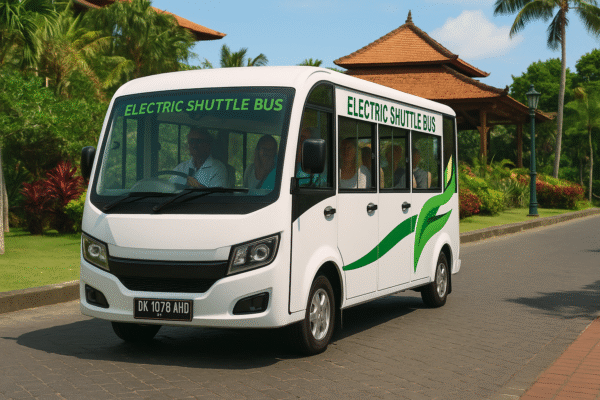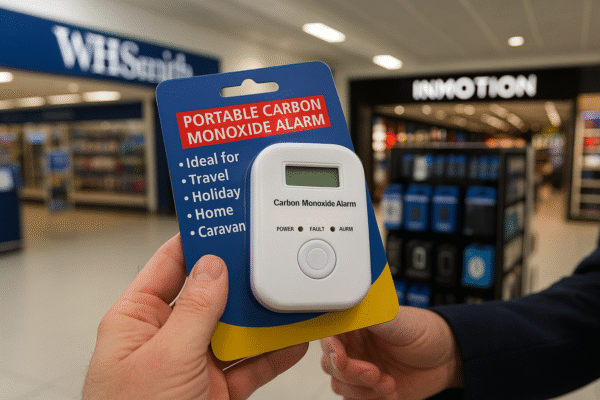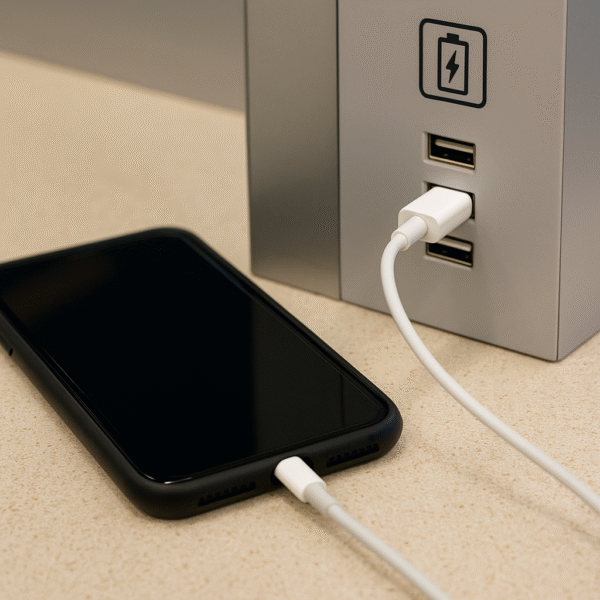In 2025, travelers are facing a growing cybersecurity threat hidden in plain sight — juice jacking. This term refers to the practice of cybercriminals using public USB charging ports to steal personal data or install malware on unsuspecting users’ phones and devices. As tourism rebounds globally, so does the risk of falling prey to this modern form of digital pickpocketing, particularly in high-traffic areas such as airports, hotels, cafes, and conference centers.
While juice jacking remains relatively rare, security agencies including the FBI, Transportation Security Administration (TSA), and Federal Communications Commission (FCC) have all issued public warnings urging travelers to avoid public USB ports due to potential compromise. The message is clear: convenience can come at a high cost.
What Is Juice Jacking?
Juice jacking occurs when malicious actors tamper with USB charging stations or cables, exploiting the fact that USB ports can transmit both power and data. When a device is plugged into an infected port, it may unknowingly establish a two-way connection, giving hackers access to sensitive personal data.
Potential threats include:
- Data theft (contacts, emails, photos, passwords)
- Malware installation for surveillance or remote access
- Unauthorized commands (e.g., keystroke recording, browser hijacking)
Although real-world attacks are seldom reported publicly, cybersecurity researchers continue to demonstrate just how easy it is to manipulate a USB port to execute these actions.
How Do Hackers Do It?
Hackers may install discreet microcontrollers inside USB ports or cables. One notorious example is the O.MG cable—a device that looks like any ordinary USB cord but can remotely inject commands, track keystrokes, or install spyware.
Some attacks can even bypass initial security prompts by exploiting firmware vulnerabilities, especially on outdated devices. While advanced attacks like these are rare, the rise in digital nomadism and remote work means more travelers are exposed to risk than ever before.
Why Are Travelers at Greater Risk?
Travelers often encounter situations where their devices are low on battery and access to a standard outlet is limited. That makes public charging ports in airports, train stations, hotel lobbies, and tourism centers a tempting convenience.
Business travelers are especially vulnerable because they carry confidential documents and login credentials. A compromised device could serve as a gateway into a corporate network. Leisure travelers are also at risk, especially if their phones contain personal data, payment apps, or biometric credentials.
How to Spot a Juice Jacking Incident
Unfortunately, juice jacking attacks often occur without visible signs. However, subtle red flags may include:
- Rapid battery drain or overheating
- Sluggish device performance
- Unexpected app installations
- Suspicious data usage spikes
If you observe these issues after using a public charging station, you should back up your data, run a full security scan, and consider a factory reset.
What Are Device Makers Doing About It?
Leading tech companies have implemented safeguards:
- Apple’s iOS devices ask for user approval before allowing any data exchange with unknown ports.
- Android phones (since version 4.2.2) support “Charge Only” mode to prevent automatic data sharing.
Despite these features, researchers have shown that some sophisticated threats like keyboard emulation can still bypass security.
Government and Agency Warnings
In April 2023, the FBI’s Denver office tweeted a high-profile warning urging travelers not to use public USB stations. The FCC followed with updated guidance on avoiding juice jacking. These alerts are backed by years of evidence from white-hat security professionals showing how easily public charging ports can be weaponized.
Meanwhile, the Cybersecurity and Infrastructure Security Agency (CISA) has recommended that all travelers follow best practices for mobile security when abroad — especially in areas with a high volume of international transit like Singapore Changi Airport, Dubai International Airport, and London Heathrow.
How to Protect Yourself While Traveling
Experts recommend the following steps to reduce your risk:
- Use a wall charger and your own cable. Standard electrical outlets don’t carry data.
- Carry a power bank to charge on the go.
- Buy a USB data blocker. These adapters allow power but block data transfer.
- Use charge-only cables, which lack internal data wiring.
- Keep your device locked while charging, or power it down entirely.
- Avoid unfamiliar ports, especially those that appear damaged or have no recognizable branding.
Is Juice Jacking a Real Threat or Just Hype?
Some critics argue that juice jacking has become more of a theoretical concern than a real-world epidemic. Security experts acknowledge that due to OS-level protections, most consumer phones would require a user to actively approve a data connection before harm can occur.
Still, for high-risk individuals — such as journalists, government officials, and business executives — the risk is significant enough to warrant proactive protection. Even for casual travelers, the minimal cost of protective gear like a $10 data blocker is well worth the peace of mind.
Final Thoughts: Travel Smart in a Digital World
Juice jacking may not be as common as pickpocketing or phishing, but it represents a growing category of travel-related cyber threats. With more travelers depending on mobile devices for navigation, communication, and financial transactions, maintaining digital security is as crucial as carrying your passport.
The bottom line: Don’t trust public USB ports. Whether you’re backpacking through Asia, attending a business summit in Europe, or island-hopping in the Caribbean, always opt for safe charging alternatives. Staying connected shouldn’t mean sacrificing your personal security.
For more travel news like this, keep reading Global Travel Wire

















